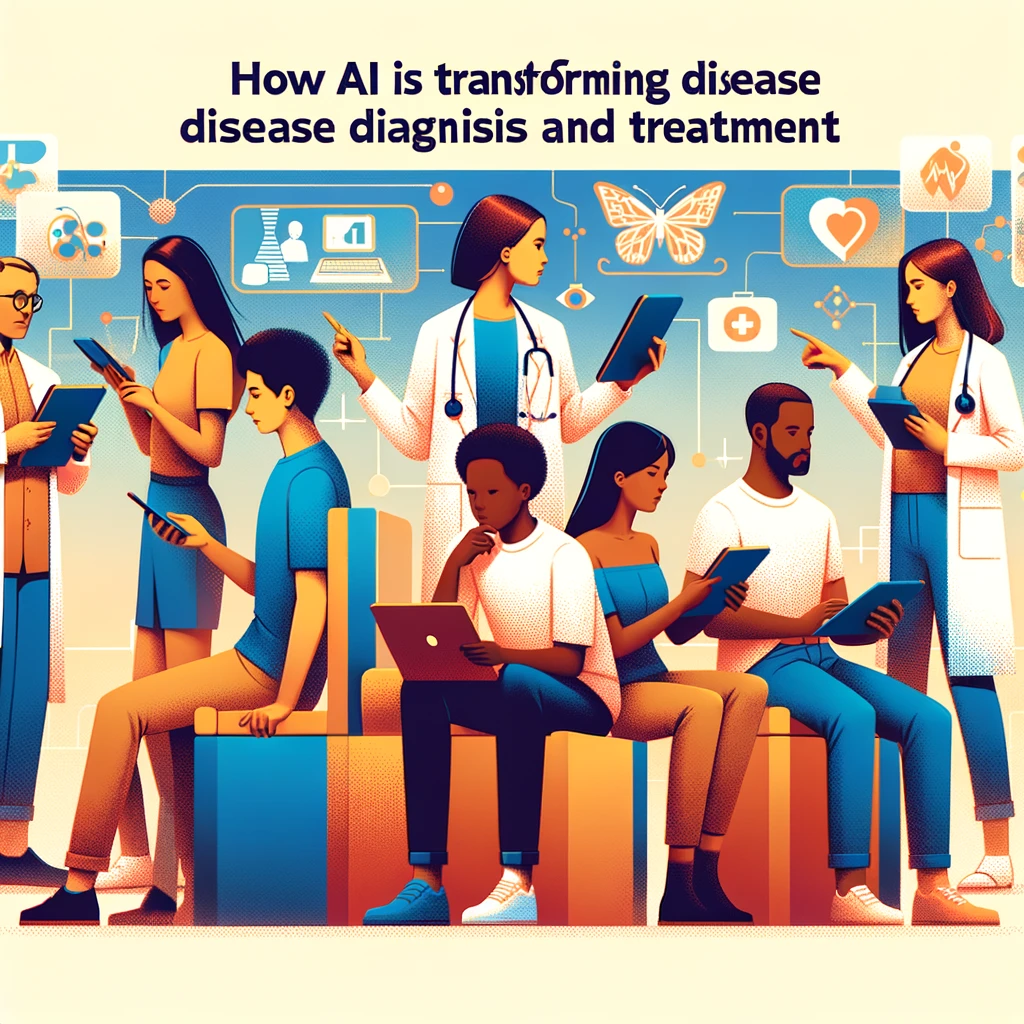In recent years, the field of artificial intelligence (AI) has made remarkable progress in various areas, including healthcare. One of the most promising applications of AI in healthcare is in disease diagnosis and treatment. AI has the potential to transform the way diseases are diagnosed, treated, and managed, ultimately improving patient outcomes and reducing healthcare costs.
One of the key ways in which AI is transforming disease diagnosis and treatment is through the analysis of medical imaging. AI algorithms can analyze medical images such as X-rays, MRIs, and CT scans to quickly and accurately detect abnormalities and identify potential signs of disease. This can help radiologists and other healthcare professionals to make more accurate and timely diagnoses, leading to better patient outcomes.
AI is also being used to streamline and improve diagnostic processes. For example, AI algorithms can analyze patient data, including symptoms, medical history, and test results, to help healthcare professionals make more accurate diagnoses. This can be particularly valuable in complex or rare diseases where traditional diagnostic methods may be less effective.
In addition to diagnosis, AI is also playing a crucial role in the development of personalized treatment plans. By analyzing large volumes of patient data, including genetic information, treatment outcomes, and other clinical data, AI algorithms can help to identify the most effective treatment options for individual patients. This can lead to more targeted and effective treatments, reducing the need for trial and error in finding the right treatment for each patient.
Another important way in which AI is transforming disease diagnosis and treatment is through the use of predictive analytics. By analyzing patient data, AI algorithms can help to identify patients at high risk of developing certain diseases or complications, allowing healthcare professionals to intervene earlier and prevent or manage these conditions more effectively.
Furthermore, AI is also being used to improve the efficiency and accuracy of healthcare operations. For example, AI algorithms can help to optimize patient scheduling, resource allocation, and workflow management, ultimately improving the overall quality and efficiency of healthcare delivery.
While AI has the potential to revolutionize disease diagnosis and treatment, it is important to note that there are still many challenges and considerations that need to be addressed. For example, ethical considerations, data privacy and security, and the need for regulatory oversight are all important factors that need to be carefully managed as AI is integrated into healthcare systems.
In conclusion, AI is transforming disease diagnosis and treatment in numerous ways, from improving the accuracy and efficiency of diagnosis to developing more personalized treatment plans. While there are still challenges to be addressed, the potential benefits of AI in healthcare are substantial, and its continued development and integration into healthcare systems hold great promise for the future of disease diagnosis and treatment.















